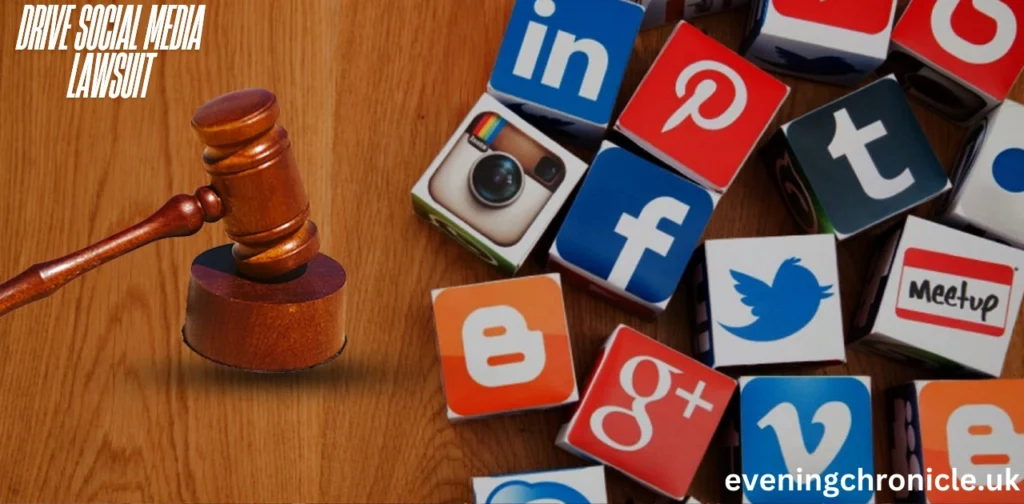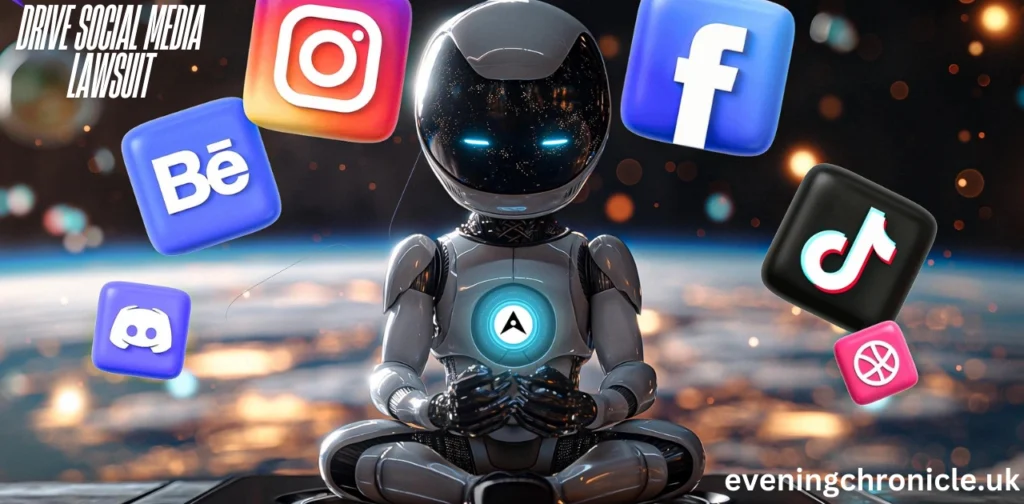In today’s digital age, social media has become a powerful tool for businesses, influencers, and individuals alike. However, with great power comes great responsibility—and sometimes, legal consequences. The rise of social media lawsuits, particularly those involving deceptive practices, fraud, and reputational damage, has left many wondering how to navigate this complex legal landscape. Whether you’re a business owner, marketer, or influencer, understanding how to drive a social media lawsuit is crucial for protecting your interests and ensuring compliance with the law.
This guide will walk you through everything you need to know about social media lawsuits, from understanding the key allegations to implementing proactive strategies to avoid legal pitfalls. Let’s dive in.
Understanding the Drive Social Media Lawsuit: Key Facts and Allegations
Social media lawsuits have become increasingly common as platforms like Facebook, Instagram, and Twitter play a central role in marketing and communication. These lawsuits often stem from allegations of deceptive practices, misrepresentation, or even defamation. Understanding the core issues is the first step in navigating this legal minefield.
The Core Allegations: Deceptive Practices and Misrepresentation
One of the most common reasons for driving a social media lawsuit is the accusation of deceptive practices. For example, businesses may face legal action if they are found to have misrepresented their products or services in social media advertisements. Influencers, too, can be held accountable for failing to disclose paid partnerships or endorsements, which can mislead consumers.
- Example: In 2021, the Federal Trade Commission (FTC) cracked down on several influencers for not properly disclosing sponsored content, leading to fines and legal action.
- Tip: Always ensure transparency in your social media posts. Clearly label sponsored content and avoid making exaggerated claims about products or services.
Key Players and Legal Proceedings: What You Need to Know
Social media lawsuits often involve multiple parties, including businesses, influencers, and even the platforms themselves. Legal proceedings can be complex, with cases often spanning months or even years.
- Example: A high-profile case involving a drive social media lawsuit in St. Louis saw a local business suing a competitor for defamatory social media posts. The case highlighted the importance of gathering solid evidence to support claims.
- Tip: If you’re considering legal action, consult with a lawyer who specializes in social media law to understand your options and the potential outcomes.
How to Drive a Social Media Lawsuit: Legal Strategies and Steps
If you find yourself in a situation where legal action is necessary, it’s important to know how to proceed. Here’s a step-by-step guide to driving a social media lawsuit.
Identifying Legal Grounds: Defamation, Fraud, and More
Before filing a lawsuit, you need to identify the legal grounds for your case. Common grounds for social media lawsuits include:
- Defamation: False statements that harm your reputation.
- Fraud: Misrepresentation or deceptive practices.
- Copyright Infringement: Unauthorized use of your content.
- Example: A business owner in St. Louis successfully sued a former employee for defamation after the employee posted false accusations on social media.
- Tip: Document all relevant posts, comments, and interactions as evidence for your case.
Gathering Evidence: Proving Damages and Liability
Evidence is crucial in any lawsuit. In social media cases, this often includes screenshots, timestamps, and witness statements.
- Example: In a recent drive social media lawsuit update, a company was able to prove damages by showing a direct correlation between defamatory posts and a decline in sales.
- Tip: Use digital forensic tools to preserve and authenticate social media evidence.
Navigating the Legal Process: From Filing to Settlement
Once you’ve gathered evidence, the next step is to file your lawsuit. This process can be lengthy and may involve negotiations, mediation, or even a trial.
- Tip: Consider alternative dispute resolution methods like mediation to save time and legal costs.
Beyond Financial Loss: The Real Damage Driving Social Media Lawsuits
While financial losses are often the focus of lawsuits, the real damage can go much deeper.
Reputational Damage: Protecting Your Brand and Image
A single negative social media post can tarnish a brand’s reputation for years. Lawsuits can help mitigate this damage by holding the responsible parties accountable.
- Example: A well-known influencer faced backlash after a controversial tweet, leading to a lawsuit from affected parties. The case highlighted the importance of maintaining a positive online presence.
- Tip: Monitor your social media channels regularly and address negative comments or posts promptly.
Emotional Distress: The Human Cost of Social Media Harm
Social media lawsuits can also address the emotional toll of online harassment or defamation.
- Example: A recent case involved a plaintiff who suffered severe emotional distress due to cyberbullying on social media. The court awarded significant damages for the psychological harm caused.
- Tip: If you’re experiencing online harassment, seek legal advice and consider filing a lawsuit to protect your mental health.
Proactive Protection: Preventing the Need to Drive a Social Media Lawsuit
The best way to handle a social media lawsuit is to avoid one altogether. Here’s how you can protect yourself proactively.
Implementing Social Media Policies: Best Practices for Businesses
Having clear social media policies in place can help prevent legal issues.
- Tip: Create a social media policy that outlines acceptable behavior, disclosure requirements, and consequences for violations.
Monitoring and Responding to Online Threats: Taking Control
Regularly monitoring your social media channels can help you catch potential issues before they escalate.
- Tip: Use social media monitoring tools to track mentions of your brand and respond to negative comments professionally.
Legal Due Diligence: Vetting Marketing Partners and Platforms
Before partnering with influencers or platforms, conduct thorough due diligence to ensure they align with your brand values and legal standards.
- Example: A company avoided a potential lawsuit by vetting an influencer’s past posts and ensuring they had a clean record.
- Tip: Always review contracts and agreements carefully before signing.
Platform Accountability: Can You Drive a Social Media Lawsuit Against Social Networks?
Holding social media platforms accountable is a growing area of legal interest.
Legal Grounds and Challenges: Holding Platforms Responsible
While it’s possible to sue social media platforms, it can be challenging due to protections like Section 230 of the Communications Decency Act.
- Example: A recent case attempted to hold a platform accountable for hosting defamatory content, but the case was dismissed due to Section 230 protections.
- Tip: Consult with a lawyer to explore alternative legal strategies if you believe a platform is at fault.
Emerging Legal Strategies: Novel Approaches to Platform Liability
New legal strategies are emerging to hold platforms more accountable, particularly in cases involving harmful content.
- Tip: Stay informed about changes in social media law and consider joining advocacy groups pushing for platform accountability.
The Evolving Landscape: How to Drive Social Media Lawsuit Changes Industry Standards

Social media lawsuits are shaping the future of digital marketing.
Regulatory Changes and Industry Best Practices
As lawsuits increase, regulators are stepping in to create new rules and guidelines.
- Example: The FTC has updated its guidelines for influencer marketing, requiring clearer disclosures.
- Tip: Stay compliant with the latest regulations to avoid legal issues.
The Future of Digital Marketing: Increased Transparency and Accountability
The trend toward greater transparency and accountability is likely to continue, driven by both legal action and consumer demand.
- Tip: Embrace transparency in your marketing practices to build trust with your audience.
FAQs: Your Questions Answered on Social Media Lawsuits
Q: Can I sue someone for posting false information about me on social media?
A: Yes, if the false information has caused harm to your reputation or financial losses, you may have grounds for a defamation lawsuit.
Q: How long does a social media lawsuit typically take?
A: The duration varies depending on the complexity of the case, but it can take anywhere from several months to a few years.
Q: Can social media platforms be held liable for user-generated content?
A: Generally, platforms are protected by Section 230, but there are emerging legal strategies to challenge this protection.
Conclusion: Navigating the Legal and Ethical Challenges of Social Media
Social media lawsuits are a growing reality in today’s digital world. Whether you’re a business owner, influencer, or individual, understanding how to drive a social media lawsuit is essential for protecting your interests. From identifying legal grounds to implementing proactive strategies, this guide has covered the key steps you need to take.
As the legal landscape continues to evolve, staying informed and proactive is your best defense. If you found this article helpful, please share it with others who might benefit. Have questions or experiences with social media lawsuits? Leave a comment below—we’d love to hear from you!

